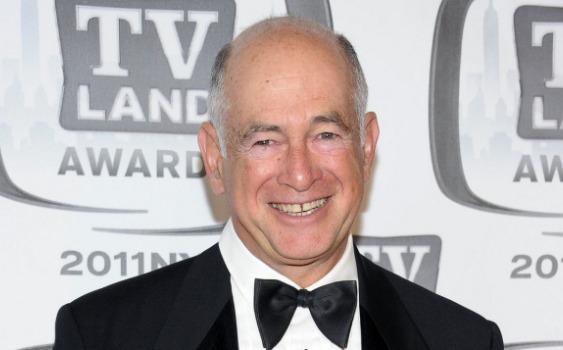 Editor's Note: For years, TV Worth Watching has campaigned to have Gary David Goldberg's semi-autobiographical series Brooklyn Bridge released on DVD. To honor Goldberg's TV legacy, we're going to try again. Please leave a comment on our official
Editor's Note: For years, TV Worth Watching has campaigned to have Gary David Goldberg's semi-autobiographical series Brooklyn Bridge released on DVD. To honor Goldberg's TV legacy, we're going to try again. Please leave a comment on our official Brooklyn Bridge
campaign page, to show your support...TV writer-producer Gary David Goldberg, creator of
Family Ties and
Brooklyn Bridge, died Sunday at age 68. His credits also include
Lou Grant, and one great show you’ve never seen…
That’s not hyperbole. The show was Bureau, and it was a series pilot made for CBS in 1980, about war correspondents during the Vietnam War. The 60-minute pilot, like a subsequently retooled 30-minute sitcom version, never was broadcast by CBS, and never put on the network schedule. I know about it, and saw it, only because Gary Goldberg showed it to me one day in his production office.
He was proudly showing off a missing piece of his TV canon — a show that, had CBS put it on its fall 1980 schedule as originally intended, would have arrived four months before NBC’s Hill Street Blues, and most likely would have gotten some, if not all, of the credit that fine cop series has received for changing the face of television.
More on that later. But Goldberg, in almost everything he wrote and produced for TV, changed the face of television a little — and always for the better.
Among Goldberg’s earliest TV scripts were episodes for The Bob Newhart Show, The Tony Randall Show and M*A*S*H. He wrote many episodes of, and was an executive producer for, Lou Grant, the show that made a bit of TV history by being the first dramatic series spun off from a sitcom – in this case, the classic The Mary Tyler Moore Show.
After helping to shape
Lou Grant, Goldberg launched his own series, NBC’s
Family Ties, discovering Michael J. Fox in the process. That show, and his subsequent collaboration with Fox on another sitcom,
Spin City, are the accomplishments for which Goldberg is best known, and which feature most prominently in the majority of his obituaries.
Family Ties indeed deserves that sense of prominence. Launched in 1982, it not only established an iconic new talent in Fox, but, in his conservative character of Alex Keaton, anticipated the generational shift from Sixties radicalism to Reagan Republicanism.
But
Lou Grant was important, too, for mixing comedy and drama in a full-length drama series in a way that was unprecedented then, but is commonplace now, even in the darkest of cable dramas.
And let’s not forget, please,
Brooklyn Bridge, Goldberg’s perfectly nostalgic, nostalgic perfect 1991-93 comedy reflecting his own New York childhood. Marion Ross, the white-bread mom in
Happy Days, played the Jewish grandmother, and brilliantly.
Brooklyn Bridge is a series we care about a great deal here at TV Worth Watching. Archived contributor Tom Brinkmoeller, the other TV critic with me that day in Goldberg’s office to get a “bootleg” screening of Bureau, has written stories complaining about the unavailability of Brooklyn Bridge on home video — and years later, those stories continue to generate comments about fans eager to purchase copies of the comedy for themselves.
And they haven’t even seen Bureau, which Goldberg made as an MTM Productions pilot for CBS two years before Family Ties. Grant Tinker, who ran MTM at the time, once told me, “The network, however well we had done it, probably didn’t want a show about Vietnam,” and had ordered the pilot just to keep Goldberg, a rising writer-producer, in its shop. (As it was, his Family Ties became a major hit for NBC.)
But Bureau has its place as one of the jewels in Goldberg’s crown. It starred Richard Dysart as an assignment editor, John Getz as a Vietnam reporter, and Peter Jurasik as an army information officer. The tone of the original pilot, like Lou Grant, mixed drama with comedy, and one other bold stroke of Bureau was that Goldberg had envisioned it as a show with a definite arc: Each season would reflect one year of the Vietnam War, starting with the events of 1967. Had the series lasted eight years, it would have ended with Goldberg recreating the fall of Saigon.
“It was the biggest disappointment of my career,” Goldberg told me then. “What else can I say?”
What else I can say is this: Gary David Goldberg left us with so much excellent and influential television that there should be no room for disappointment. Except for this: Brooklyn Bridge should be available on DVD.
And to help honor Goldberg’s memory, TV Worth Watching will try, try again to help make that happen…
Here's the first part of a wonderful multi-part interview the Archive of American Television did with Gary David Goldberg: